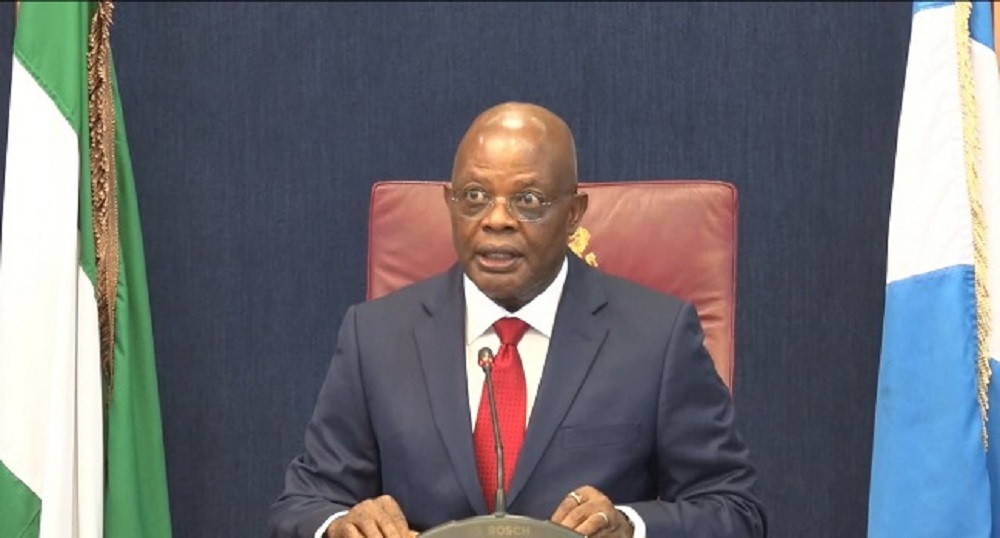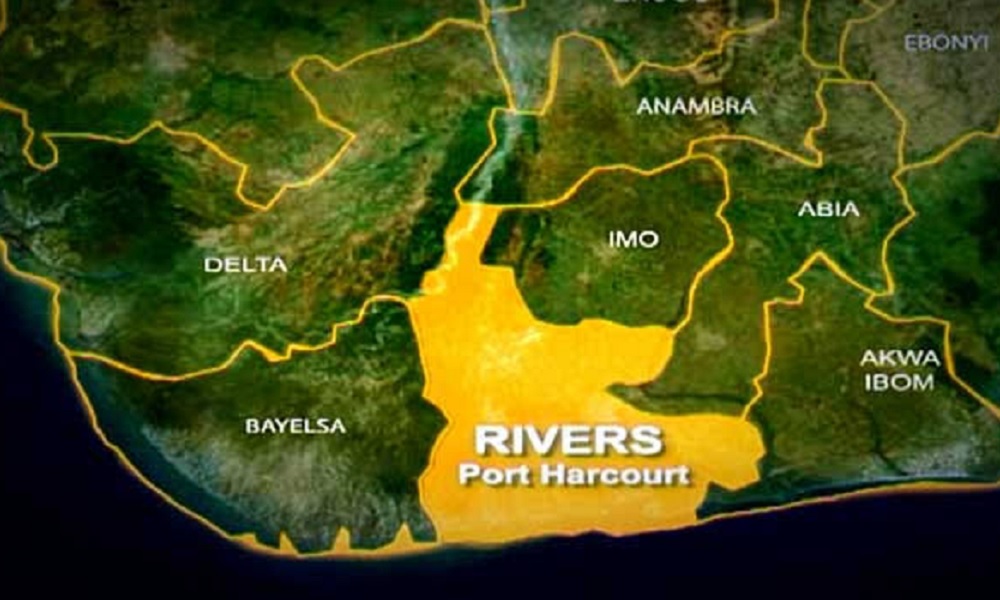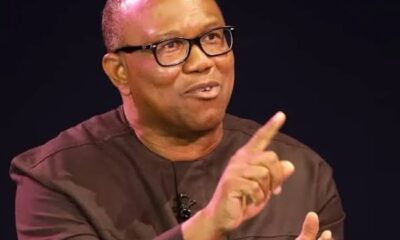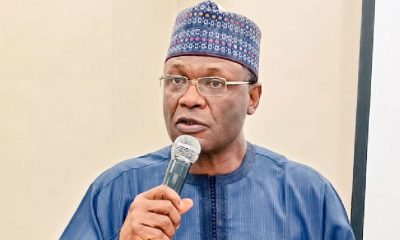News
85 per cent of journalist killings go unpunished

Between 2006 and 2024, over 1,700 journalists have been killed around the world, and around 85 percent of the cases did not make it to court, according to a report by the UN Educational, Scientific and Cultural Organization (UNESCO).
The dangers faced by journalists, including risks to their lives, are highlighted each year on the International Day to End Impunity for Crimes against Journalists, which falls on 2 November.
This year, the International Day coincides with the biannual UNESCO Director-General’s Report on the Safety of Journalists and the Issue of Impunity, which recorded a 38 per cent increase in the number of journalist killings compared to the previous study.
In his 2024 message for the Day, UN Secretary-General António Guterres pointed out that Gaza has seen the highest number of killings of journalists and media workers in any war in decades and called on governments to take urgent steps to protect journalists, investigate crimes against them and prosecute perpetrators.
The war in Gaza inevitably dominated the 2024 UN International Media Seminar on Peace in the Middle East on Friday, an event that has taken place annually for the past three decades, with the aim of enhancing dialogue and understanding between media practitioners and fostering their contributions in support of a peaceful settlement to the Israeli-Palestinian conflict.
In a statement to the seminar, read out by UN head of global communications, Melissa Fleming, Mr. Guterres noted that journalists in Gaza have been killed “at a level unseen in any conflict in modern times”, adding that the ongoing ban preventing international journalists from Gaza “suffocates the truth even further”.
Below is an excerpt of the comments made by Cheikh Niang, chair of the UN Committee on the Inalienable Rights of the Palestinian People and the Permanent Representative of Senegal to the United Nations; Guilherme Canela, chief of the section on freedom of expression and safety of journalists at UNESCO, and Mohammad Ali Alnsour, chief of the Middle East and north Africa section at the Office of the United Nations High Commissioner for Human Rights (OHCHR).
Cheikh Niang: One year has passed since the events of 7 October 2023, when Palestinian militants attacked Israel, followed by a devastating Israeli response in Gaza.
Since then, access to information has been severely curtailed. Journalists have been killed, newsrooms destroyed, foreign press blocked and communications cut. Israeli forces, as the occupying power, have systematically dismantled Palestinian media infrastructure, silencing voices through restrictions, threats, targeted killings and censorship.
In the past 380 days, over 130 Palestinian journalists have been killed by Israeli forces in Gaza. These were voices reporting on possible war crimes, silenced before their stories could be fully told.
Journalists in Gaza continue to report on the humanitarian crisis, often at great personal risk, providing the world with an accurate picture of the unfolding tragedy. We honour their courage and recognise that their loss silences their stories and severely limits the public’s access to the truth.
Guilherme Canela: The UNESCO Director-General’s Report on the Safety of Journalists and the Issue of Impunity has, for many years, been showing a decrease in the number of journalists killed in conflicts compared with the journalists killed in other situations.
This is not true for this report. Since the report we issued in 2017, it was completely changed because of the situation in Gaza. Journalists were killed because they were telling a story, a story that is relevant for each one of us and of each citizen.
It is very scary to see the level of mistrust that there is against media all over the world and against journalists. This mistrust is happening because of a narrative of political leaders, of religious leaders, of celebrities against journalists and against journalism as a foundational pillar of our democratic values and the protection of human rights.
Mohammad Ali Alnsour: The media has a very important role in starting the accountability process, starting with documenting the crimes and violations and then into investigation and then accountability and eventually to achieve peace. Unfortunately, this has not been the case in the occupied Palestinian territories for four decades now. The issue of access also is not limited to the media and journalists.
Under international humanitarian law, the occupier, Israel, has the obligation to protect civilians, including journalists. We are hearing from very senior politicians and leaders that it is okay to kill civilians in order to achieve insignificant military objectives during that process, which is a violation of proportionality, principle and also military need.
International Day to End Impunity for Crimes against Journalists
Every two years, the awareness-raising campaign for the commemoration of the International Day to End Impunity for Crimes against Journalists coincides with the findings of the report outlining the current state of global and regional impunity.
UNESCO is concerned that impunity damages whole societies by covering up serious human rights abuses, corruption and crime. To uphold the rule of law, governments, civil society, the media and everyone concerned are being asked to join in the global efforts to end impunity.
UN News
News
Snub story on removal of Rivers Sole Administrator, it’s FAKE-Chief Registrar

By Emmanuel Agaji
The Rivers State High Court Chief Registrar, David D Thua-Maduenyi has rubbished speculations suggesting that Rivers Sole Administrator has been removed by the state’s High Court.
Naijablitznews reports this was contained in a statement personally signed by the Chief Registrar saying:
“My attention has been drawn to an online news report with the caption “BREAKING
NEWS: Governor Sim Fubara secures Court victory over Wike and Tinubu –
Federal High Court Orders Sole Administrator to vacate Government House”,
authored by one Joy Musa published by 247 ureports on Tuesday, 15th April, 2025.
“Ordinarily, I would not have bothered myself with any refutal, but for the
mischievous mention of the name of Hon. Justice Boma Diepriye which appears
synonymous with Hon. Justice Boma Diepiri of the Rivers State High Court in
paragraph 4 of the report thus:
“Justice Boma Diepriye, who presided over the case, ruled that the
appointment of a sole administrator to oversee the affairs of a state with
a sitting, democratically elected governor is “illegal, null and void…”
“In view of the above, I wish to state as follows:
Hon. Justice Boma Diepiri is not a Judge of the Federal High Court but a
Judge of the Rivers State High Court, and is already on Easter Vacation,
which commenced on Monday, 14th April, 2025.
“For the period of the Easter Vacation, only the vacation Judge is sitting:
and Hon. Justice Boma Diepiri is not the Vacation Judge.
“The mention of the name of Hon. Justice Boma Diepriye which is similar
with Hon. Justice Boma Diepiri of the Rivers State High Court is not only
false, but misleading, and clearly exposes the crass ignorance of the
reporter; as the Federal High Court is different from Rivers State High
Court.
“No State High Court gave any order(s) relating to or concerning the
subject matter as captioned in the online news.
“It is regrettable that some bloggers and online news reporters have traded
professionalism on the altar of pecuniary gains they seek to derive from traffic on
their social media handle and web pages.
“Henceforth, the Judiciary enjoins the general public to seek clarification on any
news report concerning the Court and official of the Court before publication.
“The general public is advised to clearly ignore the false and misleading publication.
News
Rivers LG administrator cautions workers to avoid any form of negligence in their duties

The newly appointed administrator of Andoni Local Government Area of Rivers State, Mr Atajit Francis has warned staff of the council against negligence to duty.
Francis handed down the warning at Ngo, the council headquarters, shortly after resumption of duty.
The administrator who also met with the Head of the Local Government Administration said that the third tier of government requires diligence to deliver people-oriented services.
Francis further said that under his watch, underperformance and dereliction of duty would not be condoned.
He stated, “While we are on the saddle, we shall reward diligence and hard work. We urge staff to work towards achieving set goals.
“My mandate is specified, they include sanitation, environmental development, job creation, primary education and primary health care.
“The essence is to positively impact the lives of our people, knowing that the local government is the closest tier of government to the people.”
Insisting that transparency and integrity were critical to effective grassroots development and service delivery, he said, “So I expect all staff to uphold the highest ethical standards and accountability in the discharge of their duties.”
Recall that the Rivers State’s sole administrator, Vice Admiral Ibok-Ete Ibas (rtd) recently appointed administrators to oversee the affairs of the 23 local government councils in the state after he suspended the Heads of Local Government Administration appointment by Governor Siminalayi Fubara.
News
Newcastle thrash Crystal Palace to go third in Premier League

Newcastle soared up to third in the Premier League with a 5-0 thrashing of Crystal Palace on Wednesday to close in on a return to the Champions League next season.
Jacob Murphy, Harvey Barnes, Fabian Schar and Alexander Isak were on target for the Magpies, with Marc Guehi also scoring an own goal, as Newcastle made light of the absence of manager Eddie Howe due to pneumonia.
A sixth consecutive victory in all competitions opens up a five-point lead for Newcastle over sixth-placed Chelsea, with a place in the top five good enough for Champions League qualification.
Palace remain down in 12th with their season now fully focused on an FA Cup semi-final date with Aston Villa later this month.
Newcastle travel to Villa on Saturday in a huge clash in the battle for European places.
But the League Cup winners are pulling away from the chasing pack for a top-five finish, buoyed by ending their 70-year wait for domestic silverware last month.
“That gave us huge confidence,” said Newcastle assistant manager Jason Tindall, who is was deputising for Howe, of lifting the League Cup.
“We were able to enjoy that for a period of time but we knew what our objectives were for the remainder of the season – to finish as high up the league table as possible.
“The manager always leads and sets that example of never switching off. They’ve gone out there, been really consistent and delivering performances.”
Isak wasted two big early chances to open the scoring when he was firstly denied by a fine Dean Henderson save and then headed over from Murphy’s enticing cross.
Newcastle only had to wait until the 14th minute to open the scoring when Murphy blasted in a remarkable finish from a narrow angle.
– Eze fluffs penalty –
Palace were gifted the chance to get back into the game when goalkeeper Nick Pope rushed off his line and wiped out Chris Richards in his attempt to punch the ball clear.
After a lengthy VAR check, a penalty was finally awarded.
However, Eberechi Eze’s lackadaisical spot-kick was easily collected by the relieved Pope.
Within a minute, Newcastle had doubled their lead when Guehi turned into his own net as he attempted to block Barnes’ cross towards Isak.
The England defender has been regularly linked with a move to Tyneside and has now scored an own goal in each of Palace’s two meetings with Newcastle this season.
“There are some days where nothing works, and at the same time everything worked for Newcastle,” said Palace boss Oliver Glasner.
“We couldn’t deal with their intensity and directness and pace.”
It went from bad to worse for the visitors as Barnes continued his fine form with a composed finish for his fourth goal in three games.
Murphy’s free-kick was then flicked in by Schar to make it 4-0 before the break.
The normally lethal Isak continued to be frustrated in front of goal as Henderson spread himself to deny another effort from point-blank range early in the second half.
However, the Swedish striker finally got his 25th goal of the season with a fine finish from outside the area just before the hour mark.
-

 News19 hours ago
News19 hours agoPDP governors declare support for Tinubu
-

 News23 hours ago
News23 hours agoEx-finance minister rearrested in new fraud probe
-

 News20 hours ago
News20 hours agoHope for Nigerians as Dangote refinery slashes petrol price again
-

 News22 hours ago
News22 hours agoFubara: How can I forgive somebody who never requested for it– Wike
-

 News20 hours ago
News20 hours agoRivers Emergency Rule: Abbas inaugurates 21-member panel
-

 News22 hours ago
News22 hours agoPeter Obi asks president Tinubu to suspend France trip
-

 News19 hours ago
News19 hours agoN1.3trn CBEX Scam: EFCC caution Nigerians against Ponzi Schemes
-

 News22 hours ago
News22 hours agoINEC chair, Yakubu calls on African youths to promote peaceful elections






